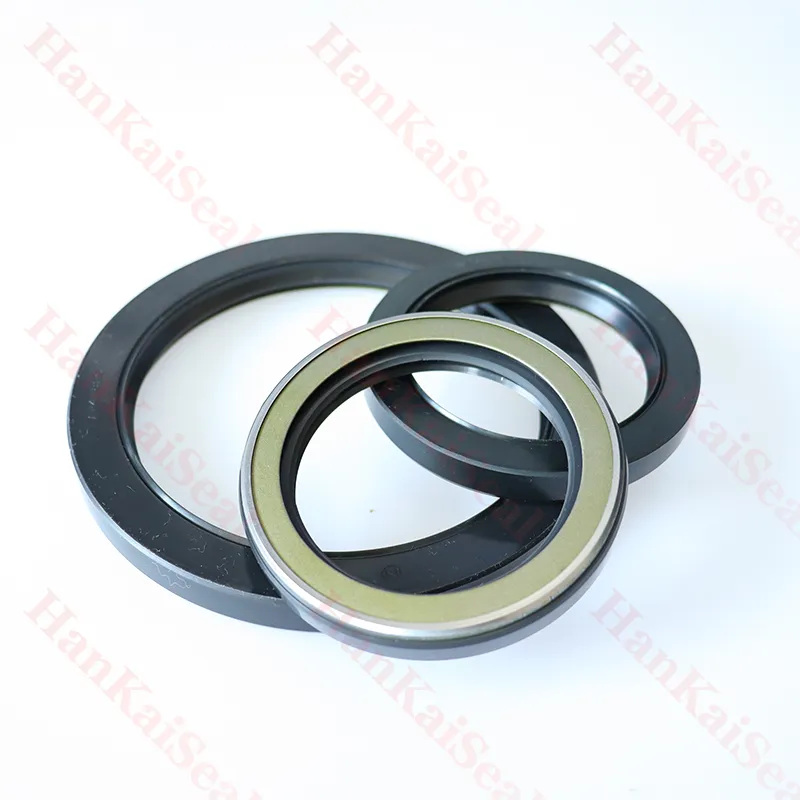Nov . 16, 2024 04:19 Back to list
industrial oil seals
Understanding Industrial Oil Seals Essential Components for Machinery Efficiency
In the realm of industrial machinery, oil seals play a crucial role in maintaining the efficiency and longevity of mechanical systems. These components are designed to prevent the leakage of lubricants while protecting the internal elements of machines from contamination by dust, dirt, and other external debris. This article delves into the functionality, design, types, and applications of industrial oil seals, highlighting their importance in various industries.
What Are Industrial Oil Seals?
Oil seals are mechanical devices that fit into the casing or housing of machinery and are specifically designed to create a barrier against the escape of lubricants and the ingress of contaminants. Typically made from elastomers, such as rubber or composite materials, industrial oil seals are engineered to withstand various environmental conditions, including extreme temperatures and pressures.
Functionality of Oil Seals
The primary function of oil seals is to maintain the integrity of lubricants within the machinery. By preventing leaks, oil seals help maintain lubrication in critical components, such as bearings and gears, which are essential for smooth operation. This not only enhances the performance of the machinery but also reduces wear and tear, resulting in lower maintenance costs and extended service life.
Moreover, oil seals act as a defense mechanism against contaminants that could lead to premature wear or damage. By effectively sealing the surfaces, they prevent dirt, dust, water, and other harmful particles from entering the internal workings of machines, ensuring a cleaner operational environment. This is particularly important in industries where machinery operates in harsh conditions, such as construction, mining, and manufacturing.
Types of Industrial Oil Seals
Industrial oil seals come in various types, each designed for specific applications and conditions
1. TC (Tandem Construction) Seals These seals consist of two sealing lips in tandem, providing superior protection against contamination and leakage. They are commonly used in applications with high-speed rotation.
industrial oil seals

2. V-Ring Seals Designed to fit over rotating shafts, V-rings create a seal by flexing against the shaft’s surface. They are known for their versatility and are often utilized in applications requiring minimal space.
3. Shaft Seals These are specifically designed to seal rotating shafts in machinery, preventing lubricants from leaking out and contaminants from entering.
4. Cam Follower Seals Used in systems where cam followers operate, these seals ensure optimal performance by preventing lubricant loss and contamination in high-load applications.
5. Flat Seals These seals are usually found in stationary applications where flat surfaces need to be sealed against leakage.
Applications of Oil Seals
The versatility of industrial oil seals lends them to a wide range of applications across various industries. In the automotive sector, oil seals are critical in engines, transmissions, and differentials to ensure smooth operation. In manufacturing, they are used in conveyors, pumps, and compressors, where reliable sealing is necessary for optimal performance.
In the aerospace industry, oil seals play a significant role in maintaining the integrity of hydraulic systems and preventing fluid leaks that could lead to catastrophic failures. In the agricultural sector, they are utilized in tractors and heavy machinery to protect against challenging operating environments often characterized by mud and debris.
Conclusion
Industrial oil seals are indispensable components that play a pivotal role in the functionality and reliability of machinery across various industries. By preventing lubricant leaks and protecting against contaminants, these seals contribute significantly to maintaining operational efficiency, reducing downtime, and extending the lifespan of equipment. As industries continue to evolve and demand higher performance from their machinery, the importance of high-quality oil seals will only grow, making them a focal point in engineering and maintenance strategies.
In summary, understanding the types, functions, and applications of industrial oil seals is essential for professionals in the field of mechanical engineering and equipment maintenance. Investing in the right oil seals and ensuring their proper installation can lead to significant benefits, not just in terms of efficiency but also in cost savings and operational reliability.
-
Wiper Oil Seal: Our Commitment to Clean Hydraulics
NewsAug.13,2025
-
Hydraulic Oil Seal for Self Discharging Cars
NewsAug.13,2025
-
Hub Oil Seal for Agricultural Tractor Hubs
NewsAug.13,2025
-
Skeleton Oil Seal with NBR Material
NewsAug.13,2025
-
Rotary Lip Seal for High Pressure Applications
NewsAug.13,2025
-
Cylinder Seal Kits Our Legacy of Hydraulic Trust
NewsAug.13,2025
-
Unlocking the Potential of Hydraulic Systems with Essential Sealing Solutions
NewsAug.06,2025
Products categories
















